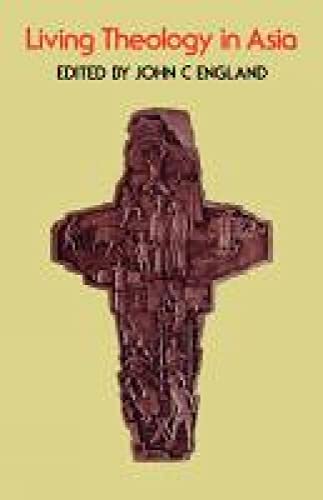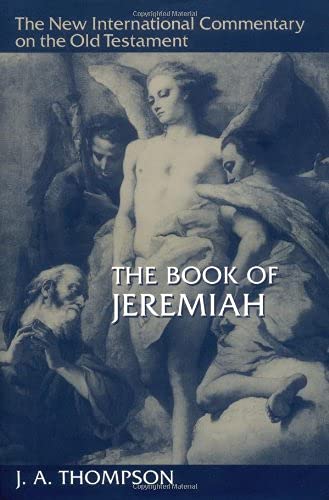John C. England has gathered together twenty-four short articles, the majority already published elsewhere, by Christian writers from many parts of Asia, who carry with them impressive and diversified experiences and backgrounds.
The articles are grouped into eight groups according to the country, with China-Taiwan-Hong Kong and Vietnam-Burma-Thailand being considered as single entities. For each group, the editor has written introductory notes to provide some of the complex historical, political, and religious-cultural context. A brief bibliography is also provided at the end of the book for background reading on national and church histories for each country.
The primary focus of the symposium, as the editor declares in his introduction, ‘is not upon theology as such’, not on theology as a mere academic exercise or as a system of thought. Rather, the central concern of the contributors is ‘the confessing of the gospel’ or ‘the incarnation of the gospel’ in the concrete life situations and sufferings of the Asian people. Their over-ruling concern is ‘first of all pastoral and missional’ (pp. 1–3).
Since the emphasis is on ‘local theologies’, one would expect that, in view of the complexity and diversity of the peoples and cultures of the Asian countries, there would also be a diversity of life situations which the contributors of the different countries would address to. In fact it appears that the writers, or the writings selected by the editor, are primarily, if not exclusively, concerned with what the editor calls ‘the only major historical experience which all countries of Asia have in common’, namely, ‘the destructive impact of colonialism and neo-colonialism’ (pp. 3f.). (This sweeping statement overlooks Thailand and Japan which were never colonies of any foreign powers.) In spite of the editor’s denial, it seems that this symposium is another version of liberation theology with considerable emphasis on ‘liberation’, ‘struggle’, ‘revolution’, ‘justice’, etc. in the writings.
Most of the articles are clearly written and forcibly argued and make reading both interesting and stimulating. Space does not permit detailed descriptions of each article. A few examples will suffice. Kim Chung-Choon argues that God comes to man not only as the judge or comforter, but also as co-sufferer, and he suffers for his salvation (pp. 15–21). Masao Takenaka urges us to recognize the profound significance of the church as the community of the first-fruits of the new humanity restored in Jesus Christ. The image of the first-fruits is seen ‘not in terms of Christian identification with the world’, much less in terms of ‘a life of resignation and withdrawal’, but rather it is to be seen ‘in terms of Christian presence and involvement in the concrete place of work and ordinary life’. He calls for a new Christian style of living, an ‘agnostic’ way of life which involves ‘costly love’, taking part in the agony, misery and anxiety of man as Christ did (pp. 37–43).
Raymond Fung stresses that a man is not only a sinner, he is also the ‘sinned against’. Therefore an evangelistic message should be proclaimed in words of comfort, with compassion, to the ‘sinned against’. In doing so, it becomes the words of judgment, also with the same compassion, to the sinning (pp. 76–83). Levi V. Oracion affirms that, as seen in the words and life of Christ, ‘the outcasts of society have been granted the privilege of being the first citizens of God’s kingdom, and the high and the mighty may enter the kingdom only if they give themselves in service to the poor’ (pp. 103–111).
This collection deserves the attention of all who are interested in Third World theology. It is, however, recommended not without reservations. While, as a South East Asian Chinese, I share the concern and enthusiasm of many of the writers and appreciate many of their insights, I cannot agree whole-heartedly to their often one-sided approach to the complexities of the Asian situation. In particular, there seems to be an unqualified bias towards Marxist/Maoist communism. For example, Edicio de la Torre concludes that ‘a Filipino Christian cannot make a Christian political choice if he does not seriously examine the challenge of Maoism … as a concrete proposal for showing effective love to his fellow-Filipinos’ (p. 93, my emphasis. It would be interesting to know his reaction to the evils of the disastrous cultural revolution, instigated by Mao, disclosed by the Chinese officials after the downfall of the Maoist ‘Gang of Four’). In another article, Bao bluntly asserts that ‘in this land … the redemption that Jesus Christ willed to bring to the whole of mankind, is basically nothing other than this human society constructing together on the basis of that communist golden rule: ‘let each one live for all and all look after each one’ (p. 120, my emphasis. A Christ-Marx co-redemption, or even a substitution of Christ by Marx?) While the contributors are quick to condemn the evils of capitalism, they seem blind to the sins of communism. Is not Christ the Judge of all, capitalists as well as communists? If indeed the church is to commit itself ‘to the recovery of human rights … in the face of pervasive repression by a totalitarian government’ (p. 2), it is surprising that, with one exception that I noticed, no words are spoken against the violation of human rights in some communist regimes.
If the western missionary movement in Asia is said to be too closely linked with colonialism and imperialism, perhaps the indigenous effort as reflected in this book is too much entangled with nationalism and communism. Surely a more balanced treatment is warranted. In their eagerness to condemn the destructive impact of colonialism and neo-colonialism, it seems to me that many contributors do not penetrate deep enough into the intricacy of Asian humanity, and thus fail to recognize that much of the agony and suffering of the Asian people stems also from their own historic cultures and religions. As clearly witnessed in many Asian countries, a mere change in political system does not guarantee political stability nor economic prosperity. This, of course, does not mean that one should support unconditionally the present regime, but it does mean that one must be fully aware of the possible alternatives and consequences after the dissolution of the regime. The crucial question is whether it is the liberation of the people as often claimed, or just the ‘turning-of-the-table’ where the oppressor and the oppressed interchange their roles, or even worse, the people are oppressed by another political regime. In other words, whether it is truly God’s politics of reconstruction, as some of the writers would claim, or man’s political revolution.
It is a pity that no writings from the conservative evangelical theologians are represented in the book. This clearly reflects the fact that Asian liberal activists and conservative evangelicals have long neglected and rejected each other. I believe that ‘reconciliation’, and not just ‘justice’, ‘struggle’ and ‘revolution’, must be taken more seriously and indeed lived by all Christians. Only then do Christian theologians have some positive theological contributions to, and not just socio-political concern for, the Asians. Only then will the gospel of reconciliation begin to be brought home to the divided and fragmented Asian humanity.
Jiang Pisheng
Research Student, Aberdeen University






